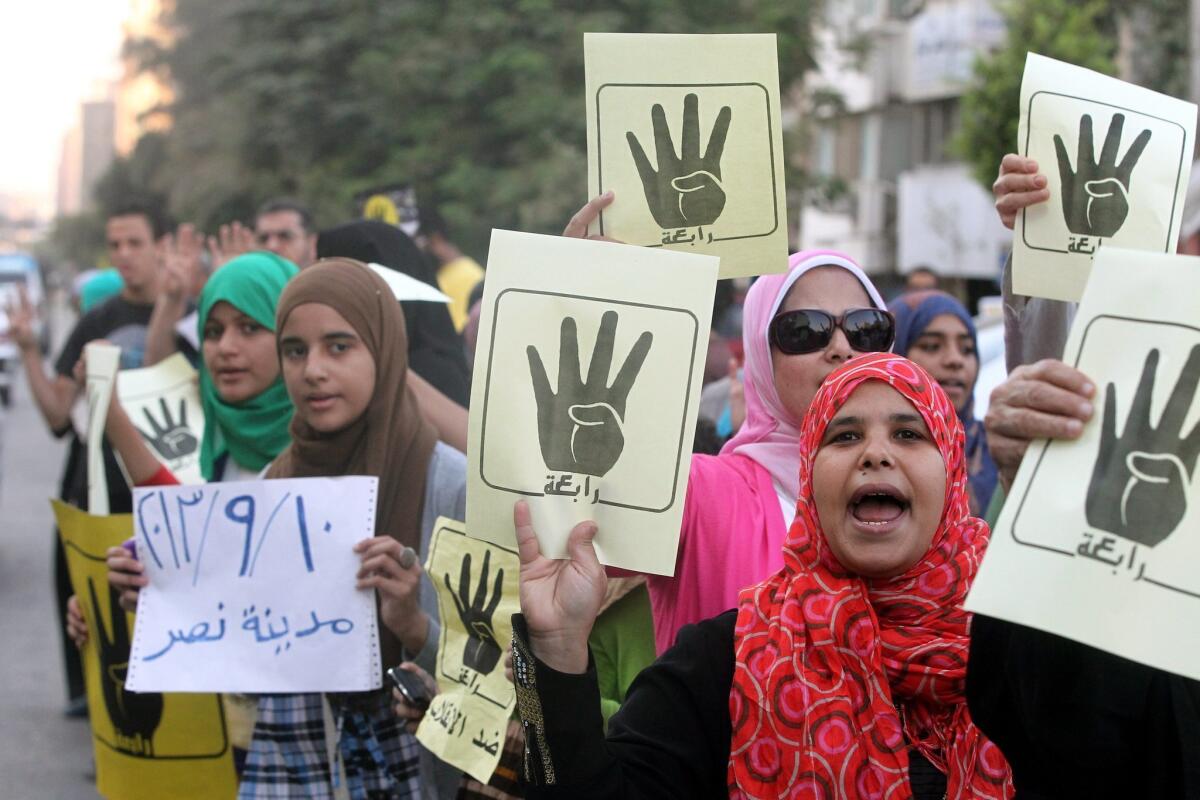Egypt bans thousands of unlicensed preachers from giving sermons

CAIRO -- Ratcheting up the pressure on followers of the Muslim Brotherhood, Egyptian authorities in effect have banned tens of thousands of unlicensed clerics from delivering mosque sermons.
The ban appears to be aimed at neutralizing imams, or preachers, who have been speaking out -- even if only in allegorical fashion -- against the July 3 coup that deposed Mohamed Morsi, the country’s democratically elected Islamist president. Such sermons sometimes take place in unlicensed mosques or small community prayer rooms known as zawiyas.
About 55,000 so-called freelance clerics will be affected, said Mohamed Mokhtar Gomaa, whose heads the state Ministry of Endowments, which regulates some religious assets and issued the ruling.
The restrictions were announced ahead of Friday prayers, the most important observance of the Muslim week. Those gatherings have been a lightning rod for Islamist protests for much of the summer, though those demonstrations have been tapering off.
The new rules were unveiled with little fanfare at a news conference Monday and reported by an Egyptian newspaper that has previously been critical of the Brotherhood. Under the regulations, imams who do not have licenses can either apply for reinstatement or be replaced by those from ministry-supervised institutions, Gomaa said.
Since toppling Morsi, the armed forces under Gen. Abdel Fattah Sisi have launched a wide-ranging crackdown on the Brotherhood, rounding up and arresting not only members of the movement itself, but activists and journalists seen as sympathetic to its aims. Most of the Brotherhood’s leadership has been imprisoned, and hundreds of pro-Morsi demonstrators were killed last month when security forces broke up ragtag protest camps.
Riding a wave of popular support for the coup even from liberal elements of Egyptian society, Sisi and senior officials have sought to portray Morsi’s followers as terrorists. Many of the Brotherhood’s adherents have gone underground, and the mosque rules were viewed as a means of intimidating those who have not.
The government’s anti-Brotherhood campaign has been boosted by public fears of an outbreak of Islamist-inspired attacks echoing those that took place in Egypt in the 1990s. Last week, Interior Minister Mohamed Ibrahim escaped a bomb blast targeting his convoy.
Gomaa said all factions must denounce what he called acts of terrorism.
“Silence will be considered a sign of approval,” he said.
ALSO:
Four face death penalty after conviction in Indian gang rape
Kenya deputy president denies guilt before international court
France to introduce U.N. resolution on Syria chemical weapons
Hassieb is a special correspondent.
More to Read
Sign up for Essential California
The most important California stories and recommendations in your inbox every morning.
You may occasionally receive promotional content from the Los Angeles Times.










